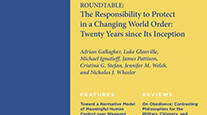With real economic benefits and perceived environmental ones, local food has been branded as an ethical alternative to the mass-produced variety. But critics point out that locavores may be forgetting crucial points about climate change and global poverty. Is local food really more moral?
Food matters. It impacts your health, your finances, the environment, and even politics. This is why many people are turning away from large-scale agribusiness and going local.
Like organic food, small-scale, local food has been branded as the ethical alternative to mass-produced food. Known as locavores, local food enthusiasts insist that it's not only better tasting and more nutritious, but also more moral. But is locally grown food really more ethical? A growing number of scientists have their doubts.
Scientists' first concern lies in local foods' alleged environmental benefits. A major part of the pro-locavore argument rests in the environmental costs of transporting industrial foods. Most foods spend days traveling from farm to fork. Because local foods travel a much shorter distance, locavores say they have a smaller carbon footprint.
But scientists argue that transportation is just one small part of food's environmental impact. More important is how food is grown and processed. Because they operate on a smaller scale, local farms are actually less efficient than large-scale farms. This means they spend more energy producing less food, and that is bad for the environment.
However, the ethics of "going local" extend beyond climate change. Studies show that money spent locally can double the income of local economies. Buying local is also more personal. Direct interactions between food producers and consumers can help communities develop a shared sense of responsibility. Yet advocates of fair trade argue that our responsibilities extend beyond our neighbors. Going local means less business for farmers in poor countries and ultimately widens the global poverty gap.
Against a backdrop of globalization and climate change, what ethical tradeoffs do you see for the local food movement?
For more information see
John Cloud, "Eating Better Than Organic," Time, March 2, 2007
Adam Dean, "Local Produce vs. Global Trade," Policy Innovations, October 25, 2008
Andrew Martin, "If It’s Fresh and Local, Is It Always Greener?" The New York Times, December 9, 2007
Stephanie J. Dubner, "You Eat What You Are, Pt. 2: Full Transcript," Freakonomics, June 6, 2012
Photo Credits in order of Appearance:
Wally Hartshorn
Scott Drzyzga
Walmart
Wil Stuckey
ad454
Ian MacKenzie
International Maize and Wheat Improvement Center
Ed Schipul
Dean Gugler
Jonathon Colman
International Center for Tropical Agriculture
Andrew Stawarz
Scallop Holden
Rainforest Action Network
Steve Garfield
Shira Golding
Gates Foundation
United Nations Photo
Oxfam International


